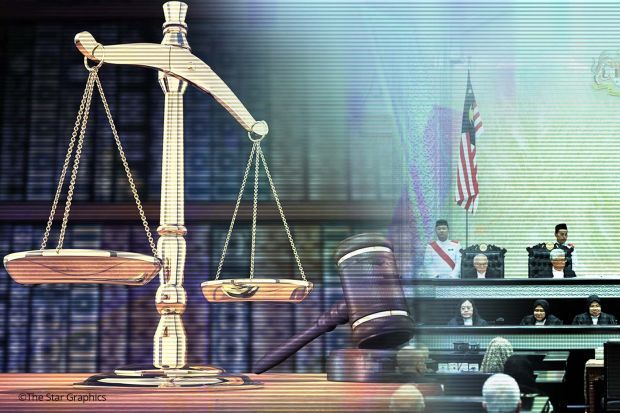
PUTRAJAYA: The Federal Court here has ruled that the National Security Council Act (NSCA) 2016 is valid on grounds that it did not contravene the Federal Constitution.
In a split 5-2 decision, the judges in the majority decision answered the questions, raised by Datuk Seri Anwar Ibrahim in his legal bid to annul the law, in the negative.
Justice Zaleha Yusof, who read the majority decision, said the bench held that measures in the NSCA, as raised in the legal bid, were justified as it had a rational nexus and was proportional to the objective to be addressed, which was national security.
The majority decision was also of the considered view that two Sections of the NSCA – Section 22 and Section 18 – did not run foul of Clause (2) of Article 9 of the Federal Constitution.
“As for the complaint that NSCA is unconstitutional because it violates the freedom of movement guaranteed in Clause (2), it must be borne in mind that Clause (2) in fact allows the freedom of movement to be restricted on four grounds, namely in the interest of security, public order, public health or the punishment of offenders,” she said in a Zoom proceeding on Friday (Aug 6).
Justice Zaleha also said that there was no indication that NSCA was meant to be the law against subversion but clearly it was meant to include protection and safety of the people against situations of disasters like flood, earthquakes and other situations such as the Covid-19 pandemic.
“The court cannot turn a blind eye but instead must take judicial notice of the magnitude and effect of the pandemic, all of which remains real and affects the security of this nation,” she added.
The apex court then ordered for the case to be remitted to the High Court for the final disposal of the originating summons in accordance with the majority judgment.
“We further order the costs of the proceedings in this court to be determined by the High Court,” she added.
Other judges who affirmed the majority decision are Justices Zabariah Mohd Yusof, Hasnah Mohammed Hashim, Mary Lim Thiam Suan and Rhodzariah Bujang.
Anwar had posed legal and constitutional questions on the NSCA in his attempt to have the security law struck down.
He had argued that the NSCA, which came into force on Aug 1, 2016, was unconstitutional as it has taken away a part of the basic structure of the Federal Constitution as well as the basic fundamental rights set out under it.
Meanwhile, in the minority decision read by Justice Vernon Ong, the judge was of the opinion that the NSCA was inconsistent with the Constitution and therefore it was “repugnant” to the Constitution.
“The choice is therefore between upholding the NSCA or the Constitution.
“Under our Constitution, the choice is made plain, the NSCA is void,” he said.
Justice Harmindar Singh Dhaliwal affirmed the minority decision.
On Sept 10, last year, the Federal Court allowed Anwar’s review application to set aside a majority ruling, which declined to answer constitutional questions on the validity of the NSCA.
It then ordered for the case to be reheard at the Federal Court.
Anwar had filed the notice of motion for the review in March last year, claiming that there was a serious breach of natural justice in the decision as he was not accorded the right to be heard on the issue of whether the questions posed were abstract, academic and hypothetical.
He claimed that the majority came to a decision based on an issue that was never raised in the submissions of the government, which was one of the respondents in his originating summons.
The Port Dickson MP had filed the originating summons on Aug 2, 2016, a day after the security law came into force to challenge the constitutionality of the NSC Act, claiming that its implementation was unconstitutional.
He had named the National Security Council and government as defendants.























